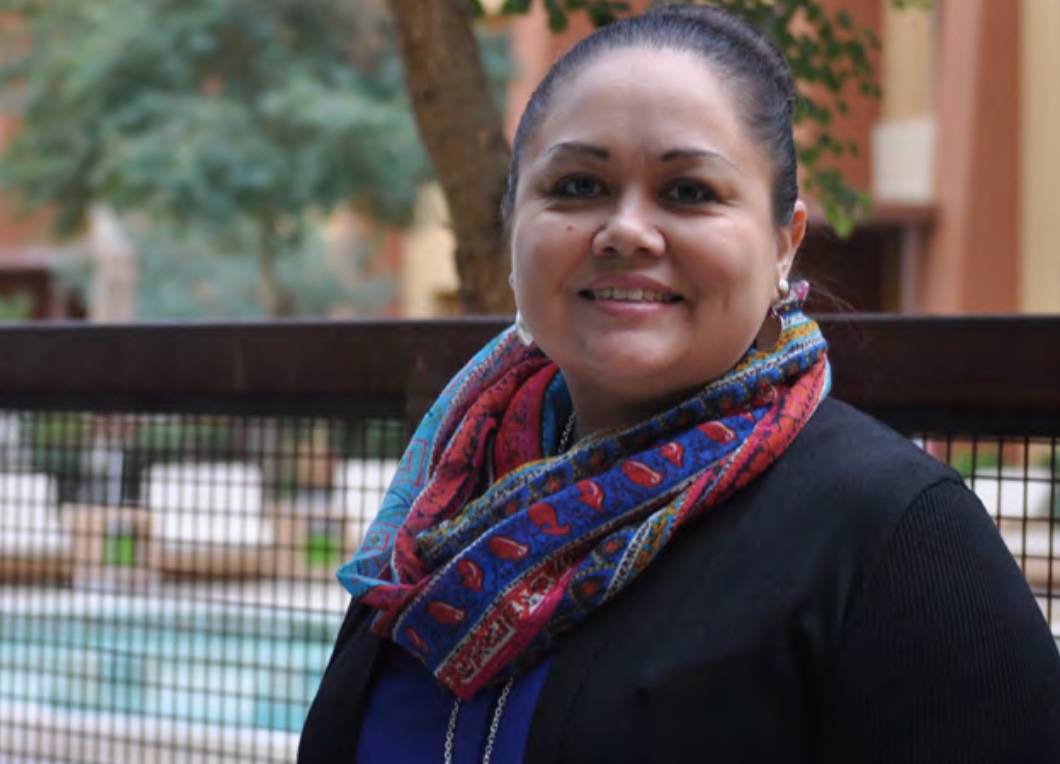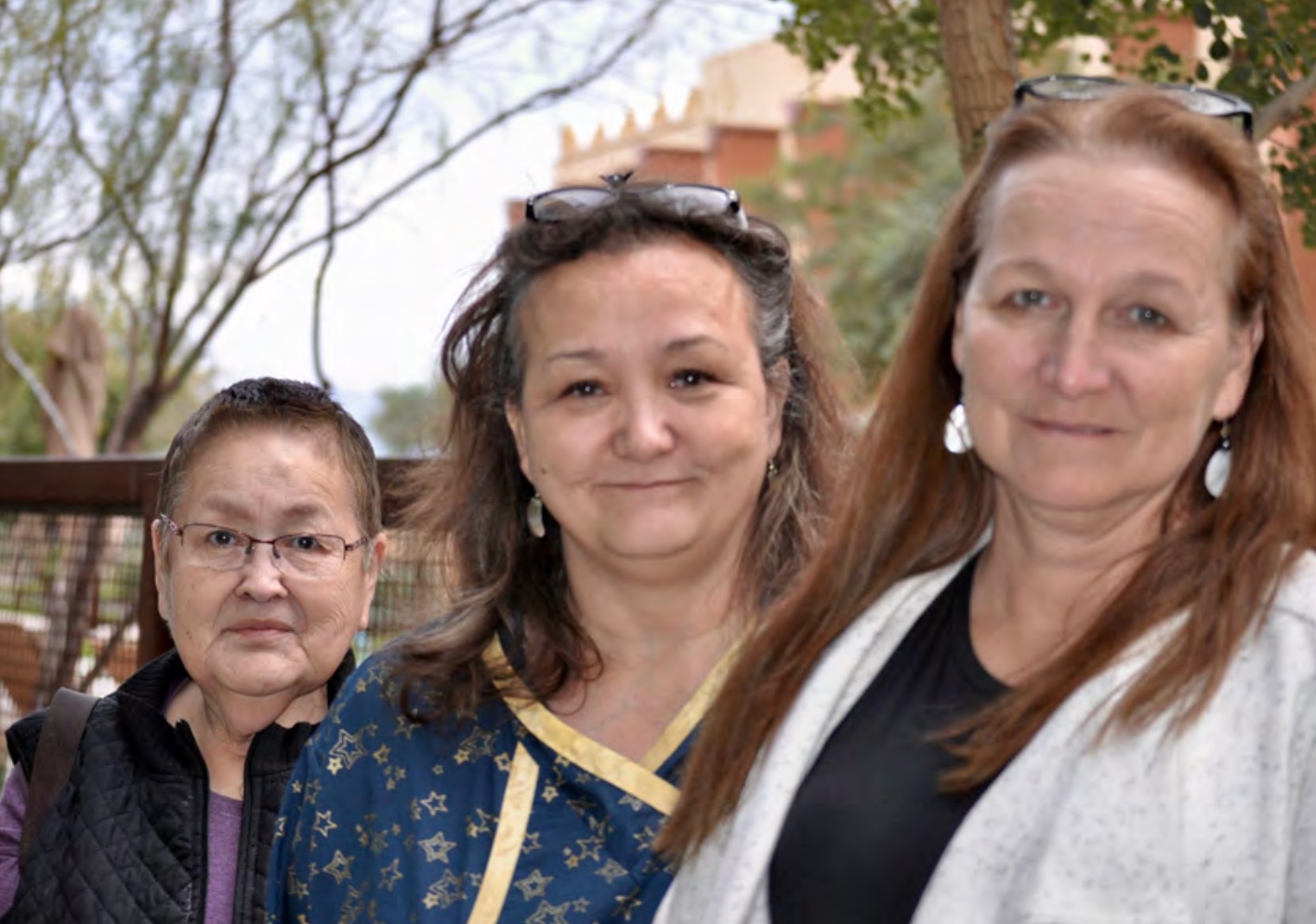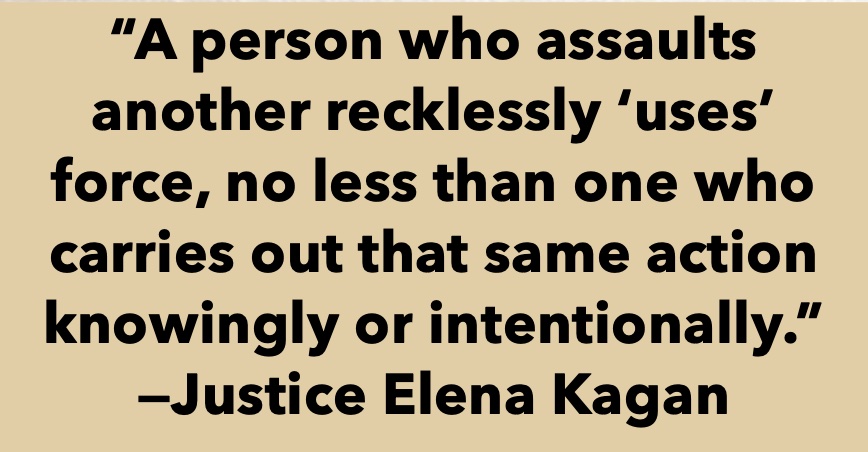Firearms Protection Legislation and Safety for Native Women: Are Legal Reforms Falling Short of Reaching Native Women?
Legislation focused on protecting the public from crimes committed with firearms in the United States spans almost 50 years. Yet after

nearly five decades, federal firearms protection legislation appears to fall short of addressing the reality of American Indian and Alaska Native women. It was not until the VAWA 2005 tribal amendment that such federal legislation provided even the possibility of increased protections for Native women.
As the national debate over firearms continues, federal protections for Native women to a large extent remain unaddressed. Native women within the jurisdiction of a tribal court face ongoing challenges in the removal of weapons from abusers who are prohibited by federal law from owning or having a gun. In addition, the charging of a federal firearms violation for a tribal victim is limited by inadequate access of Indian tribes to the National Crime Information Center (NCIC) and lack of access to law enforcement services.
In the tribal justice context, Indian tribes have the authority to enact and enforce laws to protect Native women within tribal jurisdiction from the known dangers of an abuser with a gun. Tribal governments address crime utilizing justice systems ranging from traditional, western-based, and those combining traditional and western-based approaches. While some have enacted specific laws preventing abusers from owning or having a gun, others—based on choice and limitations created by the United States—may utilize state law if shared jurisdiction exists.
How a specific tribal government responds to the need and use of firearms prohibitions is based on a complicated jurisdictional maze. Indian tribes have certain authorities not available to the federal and state governments. Examples of these tribal legal options include the authority to fine or banish an abuser who fails to follow a tribal order to not own or possess a firearm. In the realm of western-based criminal law, tribes may prosecute Indians and those submitting to the jurisdiction of the tribe. Indian tribes can also prosecute certain non-Indians if the person is in a domestic or intimate partner relationship with the tribal victim.
Historical Context of Federal Firearms Prohibitions
Congress passed the federal Gun Control Act of 1968 (GCA) in part due to the assassinations of John F. Kennedy in 1963, and Senator Robert Kennedy and Dr. Martin Luther King in 1968. The GCA focused on restricting the purchase of handguns through the mail. It later restricted purchase of shotguns and rifles, and registration requirements.
In 1994, in the first authorization of the VAWA, Congress amended the GCA to prohibit persons who are under a qualifying domestic violence court protection order from possessing or receiving a firearm. In 1996, Congress amended the GCA to include the Domestic Violence Offender Gun Ban often referred to as the Lautenberg Amendment. This amendment made it a federal felony for a person convicted of a qualifying misdemeanor crime of domestic violence to possess a firearm. This category of persons was added to the list of those prohibited under the GCA firearms prohibitions.
The GCA now bans shipment, transport, ownership, and use of guns or ammunition by individuals convicted of qualifying misdemeanor domestic violence, or who are under a qualifying restraining order for domestic abuse. The Lautenberg Amendment represents the recognition by Congress that “anyone who attempts or threatens violence against a loved one has demonstrated that he or she poses an unacceptable risk, and should be prohibited from possessing firearms. It is important to note, however, that the GCA does not include under its prohibitions misdemeanor convictions of dating violence or non-intimate partner sexual assault, or stalking.
Federal Firearms Prohibition Expanded to Include Tribal Court Conviction
The Lautenberg Amendment protections were expanded under VAWA 2005 to include tribal court convictions of misdemeanor crimes of domestic violence. The tribal VAWA amendment expanded the GCA by amending the federal criminal code to include under
the term “misdemeanor crimes of domestic violence” committed under tribal law. The 2005 amendment broadened federal law to prohibit offenders convicted of a domestic violence crime in tribal court from possessing firearms.

“Prior to the VAWA 2005 amendment tribal court convictions were not included under the Act,” said Carmen O’Leary, Director of the Native Women’s Society of the Great Plains. “Abusers convicted of domestic violence in tribal court could own and possess a firearm.”
“Prior to the VAWA 2005 amendment tribal court convictions were not included under the Act,” said Carmen O’Leary, Director of the Native Women’s Society of the Great Plains. “Abusers convicted of domestic violence in tribal court could own and possess a firearm.”
While this amendment was a large step forward, it falls short of reaching all tribal court convictions. To qualify, the tribal court conviction must meet the statutory requirements of a “misdemeanor crime of domestic violence” under the GCA. The statute fails to recognize the sovereign authority of Indian tribes in the establishment and development of tribal justice systems by placing statutory requirements on the conviction not generally required under federal Indian law.
Tribal Court Conviction: Requirements to Meet Federal Gun Prohibition
Firearms are extremely dangerous in the hands of a domestic violence abuser, and while utilization of this statute has the potential to prevent serious injury to or murder of Native women, the requirements of the statute limit the applicability of some tribal court convictions. While the VAWA 2005 federal tribal amendment opened the door to prevent those convicted of domestic violence in tribal court from possessing guns the statute also created restrictions on applicability; what “qualifies” as a conviction under the statute? The restrictions generally run astray of the Indian Civil Rights Act that does not mandate Indian tribes provide legal counsel to those not able to afford legal counsel in criminal cases.
Under federal law the term “misdemeanor crime of domestic violence” means an offense that—
“(i) is a misdemeanor under federal, state, or tribal law; and
(ii) has, as an element, the use or attempted use of physical force, or the threatened use of a deadly weapon, committed by a current or former spouse, parent, or guardian of the victim, by a person with whom the victim shares a child in common, by a person who is cohabiting with or has cohabited with the victim as a spouse, parent, or guardian, or by a person similarly situated to a spouse, parent, or guardian of the victim.”
A person shall not be considered to have been convicted of such an offense unless—
“(I) the person was represented by counsel in the case, or knowingly and intelligently waived the right to counsel in the case; and
(II) in the case of a prosecution for an offense described in this paragraph for which a person was entitled to a jury trial in the jurisdiction in which the case was tried, either: the case was tried by a jury, or the person knowingly and intelligently waived the right to have the case tried by a jury, by guilty plea or otherwise.”
In addition, a person shall not be considered to have been convicted of such an offense for purposes of this statute if the conviction has been expunged or set aside, or is an offense for which the person has been pardoned or has had civil rights restored unless the pardon, expungement, or restoration of civil rights expressly provides that the person may not ship, transport, possess, or receive firearms.
Tribal Questions and Issues of Concern
 While gains have been made over the last four decades, many issues remain unaddressed. Federal law designed to protect women from gun violence falls short of providing the same protections for American Indian and Alaska Native women. While every Indian tribe has the recognized authority as a sovereign to self-government, the intersection of tribal-state-federal laws creates everyday challenges for Native women to access the justice system. In reality, this often means domestic violence offenders continue to possess weapons that threaten the lives of Native women.
While gains have been made over the last four decades, many issues remain unaddressed. Federal law designed to protect women from gun violence falls short of providing the same protections for American Indian and Alaska Native women. While every Indian tribe has the recognized authority as a sovereign to self-government, the intersection of tribal-state-federal laws creates everyday challenges for Native women to access the justice system. In reality, this often means domestic violence offenders continue to possess weapons that threaten the lives of Native women.
While many issues prevent Native women from utilizing the legal protections that are available nationally, the following are common across Indian tribes:
- Many Indian tribes do not have access to enter tribal court orders of protection or tribal domestic violence convictions into the NCIC national protection order registry.
- The lack of adequate law enforcement complicates the implementation of firearms protection laws, and abusers who are prohibited from owning firearms can pass background checks unless their records are entered into the National Instant Criminal Background Check System (NICS), a database for firearms background checks.
- Background checks are not required on all gun sales, so domestic abusers prohibited from gun ownership can simply buy a gun from a private seller.
- Many survivors are not protected by federal law, including those victimized by dating abusers and stalkers who are non-intimate partners.
- Federal, state, and local authorities sharing concurrent criminal jurisdiction with Indian tribes do not adequately enforce the laws already in place by disarming and prosecuting domestic abusers who violate the current laws by possession of firearms.
“In our village, the tribal council issues orders of protection and as a traditional court hear cases of domestic violence. The village functions as it has for hundreds of years,” said Tami Truett Jerue, Village of Anvik, and Director, Alaska Native Women’s Resource Center. “Weapons are essential to life in our village since hunting provides our main source of food, but allowing a domestic violence offender to have a gun creates a danger to everyone.”
Supreme Court Affirmed Federal Firearms Prohibition
On June 27, 2016, the Supreme Court upheld the federal firearms prohibition challenged in the well-known case of Voisine v. U.S., which bans those convicted of misdemeanor domestic violence offense from possession of a firearm. The Court, in a 6-2 ruling, specifically found the scope of the federal firearms prohibition included those convicted of domestic violence crimes, both intentional acts and reckless. While the national debate on firearms control continues, clearly such prohibitions are here to stay in the context of national awareness of the dangers posed by offenders in cases of domestic violence. “The Voisine case is a resounding victory for survivors of domestic violence,” said Cherrah Giles, Board President for the NIWRC. “In Indian country, where Native women suffer from domestic violence at rates higher than any other demographic, we are painfully aware of the fact that domestic violence perpetrators escalate their violent acts over time, and what may begin with a reckless act often progresses to violence that results in severe injuries or fatalities at the hands of a domestic abuser.” Any firearms prohibition developed by an Indian tribe falls under its authority as a sovereign; however, the issue of safety of not only individual victims but the entire tribe must be safeguarded.
Important information links to understanding protective firearms laws:
The Violence Policy Center (www.vpc.org) is a national educational organization working to stop gun death and injury. View the VPC report When Men Murder Women: An Analysis of 2014 Homicide Data for a detailed review of 2014 data at http://www.vpc.org/studies/wmmw2016.pdf.
States United to Prevent Gun Violence (www.CeasefireUSA.org) is a national nonprofit organization working to support state-based gun violence prevention groups and help build new state-led organizations. States United believes that all Americans deserve to live in a country free from the fear, threat, and devastation caused by gun violence.






